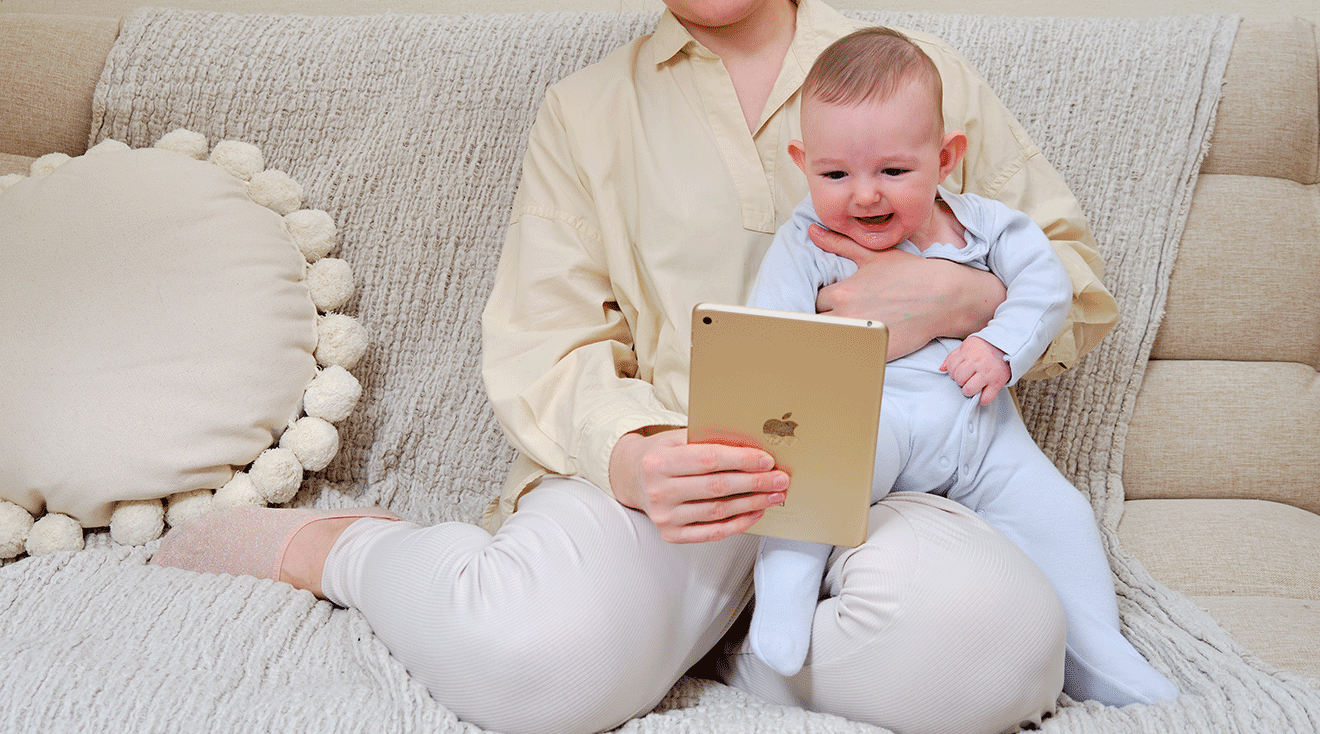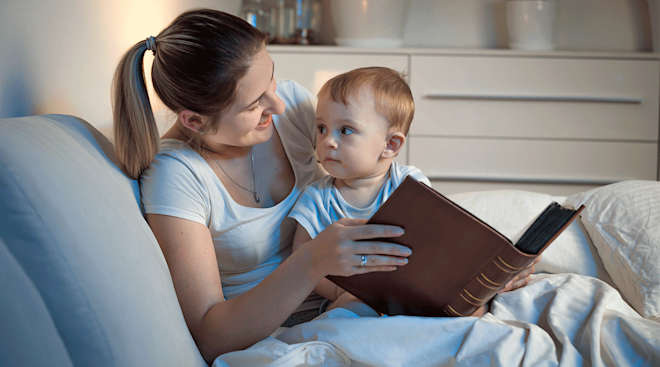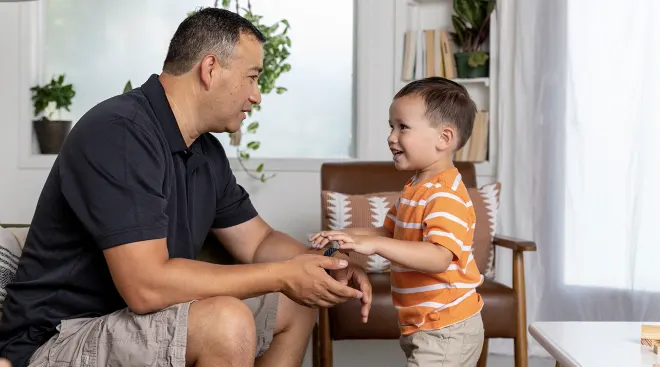Baby’s Screen Time Linked to Developmental Delays, Study Says
There’s plenty of talk these days about screen time. For parents who need a break or moment to carry out some chores or work, screens can be a sanity-saving distraction for baby. But with more screen time comes increasing pressure to identify just how screen time affects baby and their development. Learn more about a new study and the link it found between early screen time exposure and developmental delays. Plus, hear from pediatric experts on realistic screen time expectations and what you can do to lower your child’s screen time.
What did the study find?
In a new study published in The Journal of the American Medical Association Pediatrics, researchers asked the parents of nearly 8,000 children under 4 years old about their screen time habits and developmental skills.
Researchers found that 1-year-olds who were exposed to more than four hours of screen time per day showed delays in communication and problem solving at ages 2 and 4. Also, more screen time for 1-year-olds was associated with developmental delays in fine motor and personal and social skills at age 2. On the plus side, delays in fine motor and personal and social skills appeared to peter out by age 4.
It’s important to note that the study didn’t find a causation relationship between screen time and developmental delays but found an association or link between 1-year-old children who were exposed to more screen time and delays in their development.
What can parents take away from this study?
New York-Presbyterian pediatric behavior and development expert Jennifer Cross, MD, explains that it’s important to realize it’s not necessarily screen time itself that’s hurting baby’s development, but what they are missing out because of screen time that could hurt their development.
“Excessive screen time may inhibit a child’s ability to observe and experience the typical everyday activities they need to engage with in order to learn about the world, leading to a kind of ‘tunnel vision,’ which can be detrimental to overall development,” Cross said in a press release.
“When I see children walking with a parent or being pushed in a stroller, they are often playing on a smartphone or a tablet and not paying attention to anything else around them. They will not learn about the world around them if all they’re doing is looking at a smartphone. This will not just affect their ability to learn new things, but also how they interact with others and how language develops,” she noted.
But what about educational content?
Cross notes that while screens may be useful for educational purposes later in life, early on it’s not much help. “Studies have shown that children under 2 learn less from a video than when learning from another person, and it appears that although children will watch the TV screen by 6 months, understanding the content does not generally occur until after age 2. It’s not that they won’t be captivated by what’s on the screen, but they’re not learning from it,” she notes.
In the early months and years of baby’s life, it’s important to ensure they have real-world experiences with learning. For example, discovering how to balance or stack blocks is something that babies can’t learn by watching on a screen but is super valuable when learned in real life. Stacking block hits on fine and gross motor skills, problem-solving skills and communication skills if a parent or caregiver is playing along.
What can parents do to realistically manage screen time?
In today’s busy world, it’s unrealistic to expect parents to completely cut out screens from their child’s world. You shouldn’t feel guilty about letting your baby have screen time every now and then when you have to get something done. Cross recommends parents turn on a short TV show like Sesame Street or Daniel Tiger’s Neighborhood — something educational and fun that shows characters interacting and playing cooperatively to model good social skills — rather than giving their child a tablet or a phone.
You can find information on the American Academy of Pediatrics (AAP) suggested screen time usage by age and more tips for limiting your child’s screen time at AAP.org
Navigate forward to interact with the calendar and select a date. Press the question mark key to get the keyboard shortcuts for changing dates.





















































